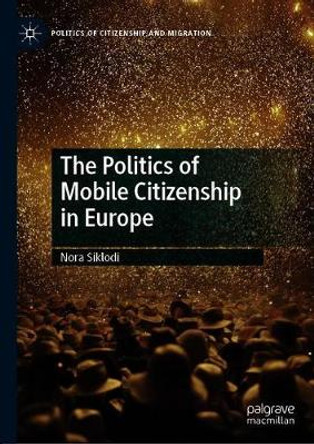Description
In this book, Marc Morje Howard addresses immigrant integration, exploring the far-reaching implications of one of the most critical challenges facing Europe.
About the Author
Marc Morje Howard is an Associate Professor of Government at Georgetown University. He is the author of The Weakness of Civil Society in Post-Communist Europe (Cambridge, 2003), an award-winning book, and he has published numerous articles in a wide array of academic journals.
Reviews
'Howard's illuminating new book studies the politics of citizenship, using a broad comparative approach. He provides a provocative analysis of liberalization in citizenship policy that will be a timely addition to the growing literature on citizenship in general and European Union studies in particular.' Seyla Benhabib, Yale University
'Marc Howard is one of a handful of scholars who takes the empirical study of citizenship policy seriously. In contrast to the many studies indulge in tedious moralizing, Howard provides a truly comparative study of citizenship across Europe, one that draws on both historical and quantitative analysis. His argument - that citizenship trajectory is a function of colonial legacies and party politics - is clear, elegant, and thoroughly convincing. This outstanding book is required reading for anyone interested in citizenship, immigration, or contemporary European Politics.' Randall Hansen, University of Toronto
'Marc Howard's excellent new book pushes citizenship to the center-stage of comparative politics. Crisply clear yet highly nuanced, the book provides compelling explanations of why some European states have recently liberalized their citizenship laws and why some others have not. Howard's skillful combination of quantitative and qualitative methods is social science at its best.' Christian Joppke, The American University of Paris
'This is the most important book on the politics of citizenship in Europe to appear in many years. Marc Howard examines two questions about citizenship policy that have intrigued several generations of social scientists: how can we account for differences among countries at similar levels development; and how can we account for changes in well-established policies? By combining case studies with a cross-national analysis of fifteen European countries, Howard develops an original, comparative and comprehensive approach for understanding the politics of citizenship.' Martin Schain, New York University
'Many authors have described and criticized European citizenship laws and policies. Marc Morje Howard measures and explains them. Here is finally an analysis of persistent differences and common trends across the European Union based on state-of-the-art comparative political science.' Rainer Bauboeck, European University Institute
'... the most intelligent book on the subject to date. ... This volume is well worth the money and the time. It is well written, makes important contributions, and clarifies the direction for future research.' European Union Studies Association Review
'... demonstrates the extensive implications of the growing and potentially volatile issue of citizenship policies and immigrant integration. This empirical study of citizenship policy enables a comparative as well as quantitative analysis of citizenship policies across the European countries ... represents a valuable resource for other scholars researching this emerging issue, as well as for policy analysts and policy makers coming from the countries that are subject to analysis and from other countries.' CEU Political Science Journal
Book Information
ISBN 9780521691277
Author Marc Morje Howard
Format Paperback
Page Count 258
Imprint Cambridge University Press
Publisher Cambridge University Press
Weight(grams) 390g
Dimensions(mm) 234mm * 156mm * 14mm








